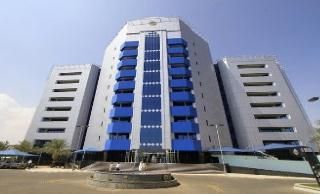Sudan says it’s in “comfortable” position to control exchange rate
January 12, 2014 (KHARTOUM) – Sudan is now in a better position to support its beleaguered currency in light of new developments, according to central bank sources.

They stressed that the recent events in South Sudan did not interrupt the transfer of dues owed to Khartoum and added that oil production increases helped boost service fees.
The sources underscored that this helped the central bank build its Forex reserves and provide hard currency needed to import wheat, gasoline and gas as well as conduct maintenance on the oil refinery so it can work at maximum capacity.
Khartoum receives a fixed fee from landlocked South Sudan for every barrel of oil exported through its pipelines which helps it cover a portion of its budget hole and more importantly provides a stable source of hard currency needed to import food.
Last week, the US dollar was trading for 8.18 pounds compared to 7.30 prior to the outbreak of violence last month in South Sudan.
The official exchange rate is around 5.7 pounds to the dollar.
This was the second time since last June that the US dollar’s exchange rate in the parallel market surpasses eight pounds. That was when president Omer Hassan al-Bashir announced that his government will not allow South Sudan to use its facilities to export oil to the international markets.
Oil production in South Sudan was partially disrupted after forces loyal to former vice president Riek Machar managed to take control of Unity state which contains some wells which are believed to have been producing around 45,000 barrels per day (bpd).
The Sudanese oil Minister Makkawi Mohammed Awad affirmed this week that flow of crude from Adar Yeil’s oil field in Upper Nile state is normal adding that production there increased from 165,000 barrels per day (bpd) to 200,000.
But on Wednesday, Reuters quoted oil industry sources as saying that South Sudan’s exports of heavy sweet Dar Blend will drop to 4.6 million barrels, or about 148,000 bpd, in January in a revised loading programme, one source said, down about 21 percent from 187,000 bpd originally planned.
Dar Blend is produced in the Upper Nile state, in Blocks 3 and 7 that are operated by the Petrodar Operating Company.
Two of the seven cargoes that had been scheduled for loading in January have been deferred to February, he told Reuters.
Exports of Nile Blend, another Sudanese crude, have also dropped after production was shut in South Sudan’s Unity state last month. The grade is also produced in Sudan where output is stable.
In a revised loading programme seen by Reuters, two Nile Blend cargoes will load in January, down from three originally, the sources said. These include a cargo that was scheduled to load in December.
(ST)
